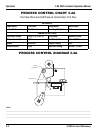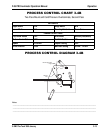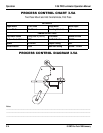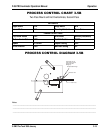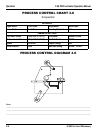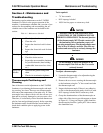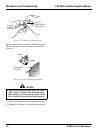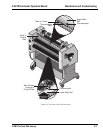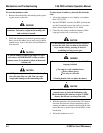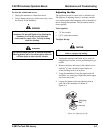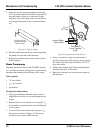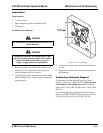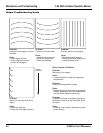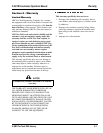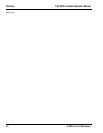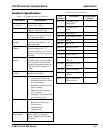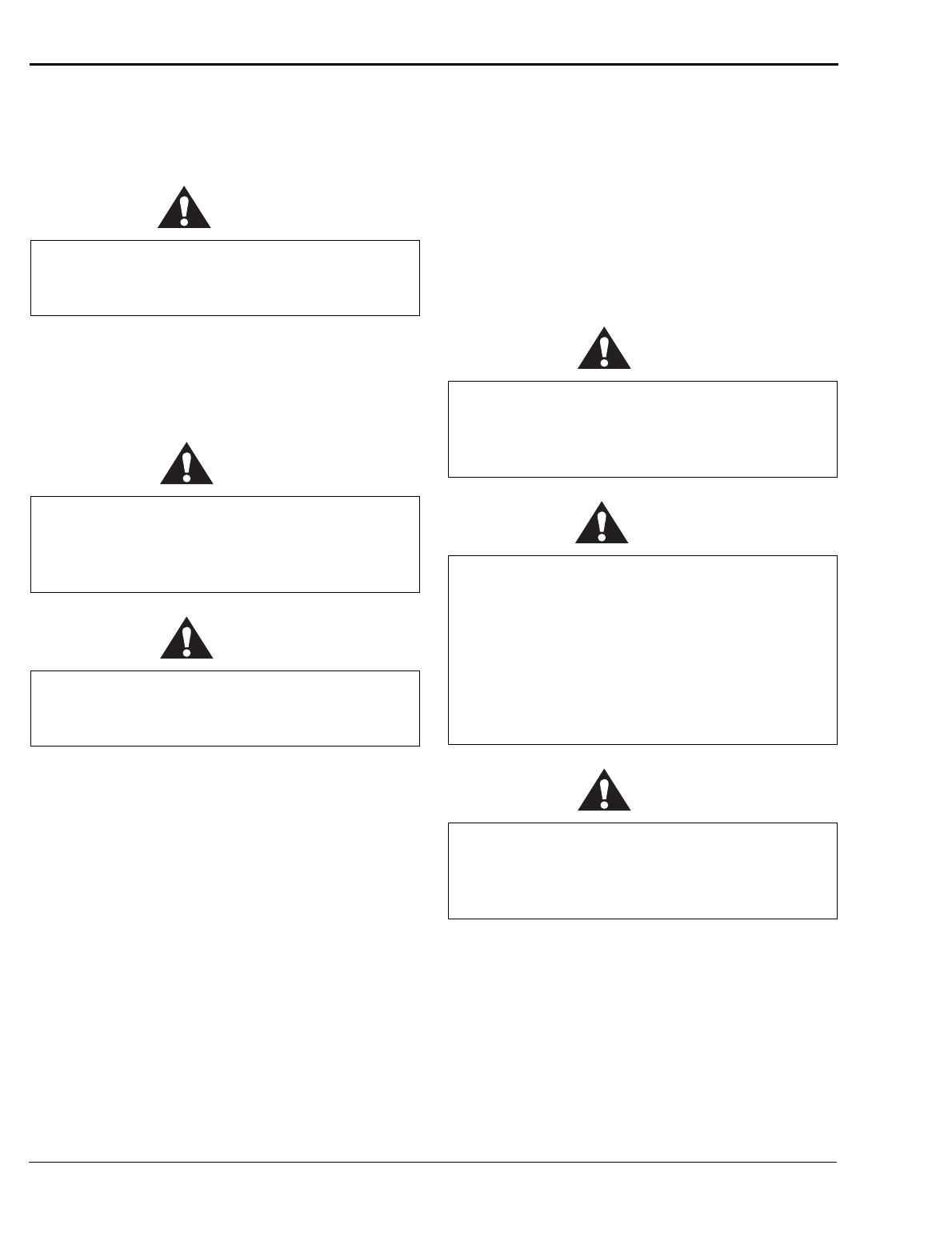
Maintenance and Troubleshooting
F-36 PRO Laminator Operation Manual
4-4
© GBC Pro-Tech 1999 January
To clean the laminator rolls:
1. Remove the infeed table and infeed pressure plate
to gain access to the rolls.
WARNING
2. While the laminator is at normal operating temper-
ature, put on the rubber gloves and, using a rubber
cement eraser, remove any heat activated adhesive
from the rolls.
CAUTION
CAUTION
To clean beads of adhesive, dust and dirt from the
rolls:
1. Allow the laminator to cool slightly to no higher
than 110ºF (43ºC).
2. Set the FWD/REV switch to the REV position and
use the footswitch to move the rolls as you clean
them. Set the Speed Control to 1.5 ft/min.
3. Clean the rolls using a moderate amount of 80%
isopropyl alcohol on a cotton terry cloth.
CAUTION
WARNING
CAUTION
4. With the laminator rolls no hotter than 110º remove
dust and dirt from the silicone laminating rolls by
running an adhesive-coated board through the lam-
inator. Be sure to set the nip for the thickness of the
board used.
5. Allow the laminator to cool.
Exercise extreme caution while cleaning the
laminator. You can be caught in the turning rolls
and crushed or burned.
If silicone adhesive contacts the upper or lower
roll, remove it IMMEDIATELY using a rubber
cement eraser. It can harden within an hour and
ruin the roll.
Do NOT pick or pull heat activated adhesive off
the rolls when they are cold. You can cause
irreparable damage to the laminating rolls.
Use the minimum amount of pressure necessary
to clean the rolls. You can destroy the silicone
layer on the rolls by pressing to hard or
scrubbing too long in one spot.
Exercise care when cleaning the rolls with 80%
isopropyl alcohol:
• Use only in a well ventilated area.
• Wear rubber gloves.
• Use only on cool rolls.
Cleaning heated rolls can ignite the fumes.
Use only 80% isopropyl alcohol or a rubber
cement eraser to clean the laminating rolls.
Harsh chemicals like toluene, acetone or MEK
destroy the silicone covering of the rolls.



